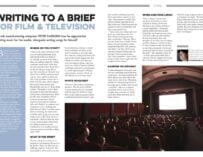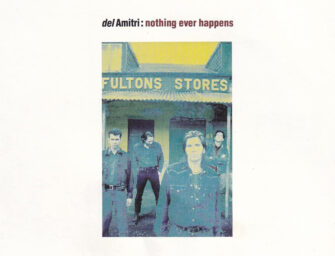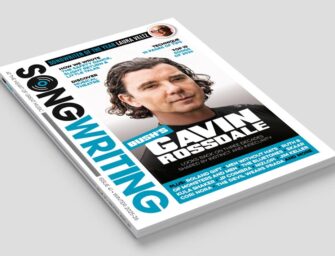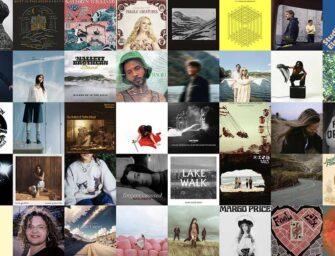
ELDR AKA Marina Elderton: “There’s far less space to occupy in comparison to songwriting in its purest sense.” Photo: Luisa Clauss
Having written music for Sky Arts, BFI and others, the award-winning composer, producer and songwriter has some tips to share
It increasing feels like the modern songwriter has to be as versatile as they are talented. With live shows one positive test from cancellation and streaming revenue not enough to sustain the majority of acts, it’s important to find new ways to diversify your talent and new places for your songs to be heard. One potential avenue is the world of film and television. Whether it’s getting a sync deal for your existing material or composing music specifically for a show or movie, opportunities are out there.
Marina Elderton is an example of the ‘ambidextrous’ artist. An award-winning composer who recently worked on the soundtrack for Poly Styrene: I Am A Cliché and has written scores and soundtracks for BBC, Sky Arts, BFI and Film4 projects, she also writes, records and performs as ELDR. Taking inspiration from artists like Björk and PJ Harvey, her sound – as heard on new EP Höly Stranger – is both deeply immersive and charmingly unnerving.
Here, Elderton shares insight that will help anyone looking to write for film and television…
1. KNOW YOUR PRODUCTION
You could write the most incredible score, but if it isn’t recorded and mixed to a decent standard it won’t get very far sadly! There are plenty of options out there, but I find Logic Pro is the most consistently user-friendly and versatile software, pairing music production tools with image. There are also some incredible plug-ins these days with huge libraries of sounds and samples (Spitfire, East West, to name a few). They can really improve the production value and expand the music in unique directions. A bit like trying different colours and textures on a canvas; a new sample can bring very unexpected and exciting results for your composition.

Marina Elderton AKA ELDR: “Filmmaking is a truly beautiful alchemy to be a part of.” Photo: Luisa Clauss
2. CONSIDER STUDYING COMPOSING FOR FILM
I began as a self-taught musician, so by no means do I believe that everyone has to go to school to perfect their skills. After learning the basics in music by ear though, I felt I needed more specific experience applying it to film. Studying an MA in Composing for Film at the National Film & Television School was a game-changer for me. It was an intensive two-year course where I was able to try things, improve my production skills and fall in love with the filmmaking process itself.
I also met a lot of wonderful emerging filmmakers there who I went on to work with, so it was a great way of finding a network of collaborators at an early stage. Don’t be too put off by the fees, because the NFTS has a scholarship programme that can heavily subsidise the cost of the course. And of course, there are lots of other music for film courses out there beyond the NFTS.
3. FIND YOUR TRIBE/BUILD YOUR NETWORK
Fair enough, it’s not always viable to give up two years of your life for film school. Beyond studying options, you could try getting in touch directly with film and art schools without in-house composers such as the London Film School, who are often looking for composers for their grad films. Similarly, you could try connecting with artists working with film to see if they would like to collaborate. Often more experimental/ less narrative films can be a great way to try new things sonically.
If you’d rather try and get paid work upfront, platforms such as Mandy frequently list short film projects looking for composers. Short film festivals can also be a useful way to meet new emerging filmmakers and producers at the start of their careers. Putting yourself out there can be a tough and uncomfortable thing, I have struggled with that as well. But anything done from pure passion and love can’t go wrong.
4. GET A PORTFOLIO AND WEBSITE TOGETHER
Before I had a composer website I would write these convoluted emails full of links, which was no doubt pretty dizzying. As soon as I got a basic website together there was a dramatic shift in jobs. So I’d recommend getting together a strong portfolio of samples showing your music to visuals, which you can send out as a single link. Even just a handful of clips showing a range of styles and moods can be a great start. In the absence of actual commissions or film collaborations, you can just as easily download pre-existing film clips or old adverts, and make your own soundtracks to them.
5. LESS IS MORE
Many filmmakers say if no one notices the music, it’s doing its job. It’s surprisingly easy to “overcook” things if the music is too dense and emotionally manipulative, or complex for picture. Ultimately the music needs to work holistically as one part of a trinity: visuals, sound design and score. There’s far less space to occupy in comparison to songwriting in its purest sense.
It all depends on the style and taste of the director and editor of course, but from my experience music works best when it can fill the gaps of what we don’t already see or hear on screen. For example, if a character is crying, is there some kind of musical counterpoint that could add emotional complexity, other than simply saying, ‘This person is sad’?
6. DON’T FORGET YOUR OWN ARTISTIC PRACTICE
It’s really important to stay inspired and keep your creative energies flowing in order to be able to constantly generate music from a joyful place. Beyond composing soundtracks, I am an artist first and foremost (I go by the name ELDR). What helps me is always keeping my independent music alive; it can energise and bring new ideas into my film work and vice versa. My sophomore EP, Höly Stranger has just been released, link below.
7. BEWARE OF TEMP MUSIC! TRY AND GET YOUR MUSIC IN AS EARLY AS POSSIBLE
I have one life-saving tip for you once you’ve landed your first film job… try to get your music into the edit as soon as possible! Often temporary (pre-existing) music is used during the editing process, which can be really useful as a guide, but all too often the execs can get very attached to the temp score when it’s working well.
I call this being “temp tracked”!! It places the composer in a difficult position of having to match or beat masterpieces that just simply can’t be replicated. A famous example of this is when the composer Alex North turned up for the premiere of 2001: A Space Odyssey thinking his score had been used only to hear all of the temp music had remained.
8. NEVER GIVE UP – REMEMBER THE BEAUTY IN WHAT YOU DO
It’s not a secret, writing music is a tough and unpredictable path to tread. But the world needs songwriters. Imagine a day when people don’t listen to music? I tell myself this sometimes as a reminder that the appetite for music is insatiable. So, keep doing the thing you love and never give up. Composing for film, TV or media can be a viable way of making a living through your natural inclinations. And filmmaking is a truly beautiful alchemy to be a part of.



































Related Articles